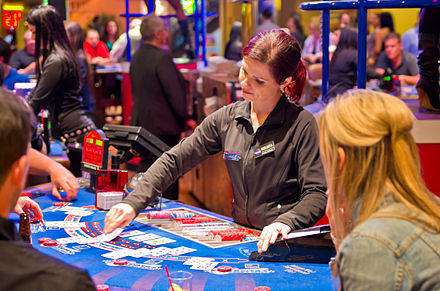Casino Encyclopedia

Slots – FAQs – The Casino Encyclopedia – We source the net for the most common questions being asked about online slots and find the correct answers for you. In the unlikely event that you have a question that isn’t displayed on this site, please feel free to contact us at info@casino-faqs.com and we will help you find the answer. Casino Fandango is a hotel and casino located in Carson City Nevada It opened on July 31 2003 and has 40891 square feet 37989m2 of gaming space In 2. BIBLIOGRAPHY In common parlance, the term casino capitalism refers to the unregulated excesses associated with the “ boom and bust ” cycles of large speculative ventures, such as Enron.
In common parlance, the term casino capitalism refers to the unregulated excesses associated with the “boom and bust” cycles of large speculative ventures, such as Enron. Its origins in the literature probably lie with John Maynard Keynes (1883–1946) and his famous General Theory of Employment, Interest, and Money, first published in 1936. In this vigorous attack on the classical and neoclassical economics that was predominant at Cambridge in the 1930s, Keynes refers to the “casino capitalism” embodied in the winning and losing of fortunes on the stock market. Keynes had already spoken in the 1920s of the immoral and insidious influence of an economy freed from restraint, believing that unfettered greed would create a wave of social problems. In chapter 12 of the General Theory, Keynes refers to casinos twice, first when he comments:

Speculators may do no harm as bubbles on a steady stream of enterprise. But the position is serious when enterprise becomes the bubble on a whirlpool of speculation. When the capital development of a country becomes a by-product of the activities of a casino, the job is likely to be ill-done. The measure of success attained by Wall Street, regarded as an institution of which the proper social purpose is to direct new investment into the most profitable channels in terms of future yield, cannot be claimed as one of the outstanding triumphs of laissez-faire capitalism. (Keynes 1936, p. 159)
Later in the same chapter, Keynes comments:
It is usually agreed that casinos should, in the public interest, be inaccessible and expensive. And perhaps the same is true of Stock Exchanges. That the sins of the London Stock Exchange are less than those of Wall Street may be due, not so much to differences in national character, as to the fact that to the average Englishman Throgmorton Street is, compared with Wall Street to the average American, inaccessible and very expensive. (Keynes 1936, p. 159)
In her 1986 book Casino Capitalism, British economist Susan Strange (1923–1998) comments: “The Western financial system is rapidly coming to resemble nothing as much as a vast casino.” Strange argues that, between about 1965 and 1985, considerable increases in risk and uncertainty in economic markets gave rise to substantial social and political disruptions in the global system. She links these changes to five major trends: (1) innovations in the way financial markets operate; (2) the increased scope of markets; (3) the shift from commercial to investment banking; (4) the rise of the Asian investment markets; and (5) the removal of government regulation from banking. Strange argues for increased regulation and more substantial American leadership, which she believes is required because of the predominant role of the United States in the world markets. Coming as it did during the period of Reaganomics, her advice fell on deaf ears.
The term casino capitalism also appears in the work of Irving Fisher (1867–1947) and Hyman Minsky (1919–1996). Fisher, along with others in the 1930s, was faced with the problem of explaining the tragedy of the Great Depression. The common view among economists of this era, of whom Keynes may be representative, was that financial markets were like casinos, rather than “markets” in the usual sense of the word, and that these speculations contributed mightily to the social ills of the day. Fisher, along with John Burr Williams (1900–1989) and Benjamin Graham (1894–1976), claimed that the casino metaphor was misplaced. Instead, they argued that the asset prices of financial assets reflected “intrinsic value,” which in turn could be calculated by deciding the total value of dividends likely to be produced in the future.
As with the work of Strange, who found value in the ideas associated with the term casino capitalism, Minsky contributed to an analysis of uncertainty in markets. Minsky is famous for proposing the financial instability hypothesis, which argues that most forms of capitalism tend toward instability. He supported long-term large-scale economies with decided government intervention. Dimitri Papadimitriou and L. Randall Wray (1998) argue that Minsky’s work, in this way, is best labeled post-Keynesian because he attempted to set out the precise institutional means by which the casino system might be better regulated, whereas Keynes made only the most general of comments. In all these cases, the notion that capitalism is essentially speculative and little more than a system of big and small bets in a grand game of chance is at work, and most of the writings around this topic focus on ways to make this irrational system more susceptible to reason and stability.
SEE ALSOBeauty Contest Metaphor; Business Cycles, Empirical Literature; Business Cycles, Political; Business Cycles, Real; Business Cycles, Theories; Economic Crises; Economics, Post Keynesian; Financial Instability Hypothesis; Financial Markets; Fisher, Irving; Keynes, John Maynard; Minsky, Hyman; Speculation; Stock Exchanges
Casino Encyclopedia Bingo
BIBLIOGRAPHY

Keynes, John Maynard. 1936. The General Theory of Employment, Interest, and Money. New York: Harcourt.
Casino Encyclopedia Wikipedia
Papadimitriou, Dimitri B., and L. Randall Wray. 1998. The Economic Contributions of Hyman Minsky: Varieties of Capitalism and Institutional Reform. Review of Political Economy 10 (2): 199–225.
Strange, Susan. [1986] 1997. Casino Capitalism. Manchester, U.K.: Manchester University Press.
Casino Encyclopedia Entertainment
Christopher Wilkes